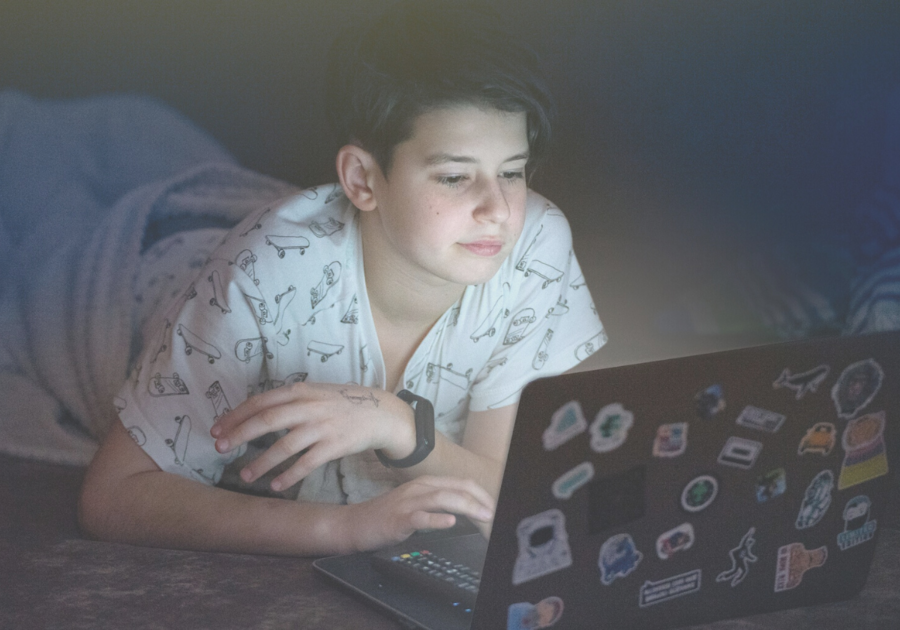Tweens and teens are spending 17% more time online according to a survey conducted by Common Sense Media.
The average kid gets their first smartphone by age nine. Most school assignments and social networking is done online. Parents feel their children are "safe" when they have a cellphone, but these conveniences come with risks: Cyberbullying, trolls, hackers, child predators, and exposure to graphic content are just some of the pitfalls your child may encounter.
Kids might stumble across pornography, images of self-harm or posts that promote disordered eating. Even Roblox, which many younger kids use, has had problems with explicit content.
There is also a lot of misinformation on Youtube, and a young child may not know how to decipher what’s real and what’s fake. Even worse YouTube's infamous algorithm was designed to expose viewers to more extreme content over time.
I spoke with Titania Jordan, Bark Technologies Chief Parenting Officer and author of Parenting In A Tech World about safeguarding your child's devices.

Jordan states, "There are two primary ways to protect your child from online dangers: parental controls and constant conversations. Let’s talk about the first. If your child has a phone or tablet, having secure parental controls in place is an absolute must. Full stop. This includes protections like website and app blocking, screen time schedules, location sharing, and content monitoring. Bark is a great example of an app that does all of this and more. Secondly, talk about everything — and I mean everything. Awareness and education are part of prevention. Sit down with them and give examples of trolls, cyberbullies, hackers — all of it. One of the most important things you can do is make sure your kid knows they can always come to you if they feel uncomfortable. Show them that you’ll be there for them when they need you, whether they’re being bullied by someone on Instagram, a strange adult is messaging them, or even if an email just seems sketchy.
I recently saw the film Childhood 2.0 which is about the perils of the web, and features Titania Jordan. Jordan recommends seeing the film with your child if they're 11 or older if they can handle serious themes.
According the Jordan, "Oftentimes kids think parents are overreacting when it comes to online dangers. Childhood 2.0 is different (and effective) because it features actual teens and tweens as well as industry- leading experts in child safety and development. It also showcases the very real dangers that social media poses — some that kids may know about and some they may not. After watching, conversations will naturally be spurred by the discussions and examples in the documentary. You’ll be able to ask your child lots of questions about their own experiences as compared to those of the kids in the film.
Of course, having serious talks like these can be hard and a little stressful. Bark has a blog post that can help you know what to say and how to respond during difficult conversations."
Just the thought of children navigating their way online can be stressful, and in my opinion the later you can put off giving your kid devices the better. My child bought his own smartphone at age ten. Two years later we retrieved all of his devices, and he has been in the midst of a digital detox for the past six months. At times it has been trying, but he is finally understanding the dangers he faced online. His school assignments are done in the classroom, or at home with me by his side. If you aren't interested going to such extreme measures, you can install parental controls on your child's devices, or soon Bark will be releasing a phone with Bark’s built-in parental controls.
You can find out more about the Bark Phone and get on the Wait List Here.
Stay Informed Join Central San Diego Macaroni Kid It's Free!



